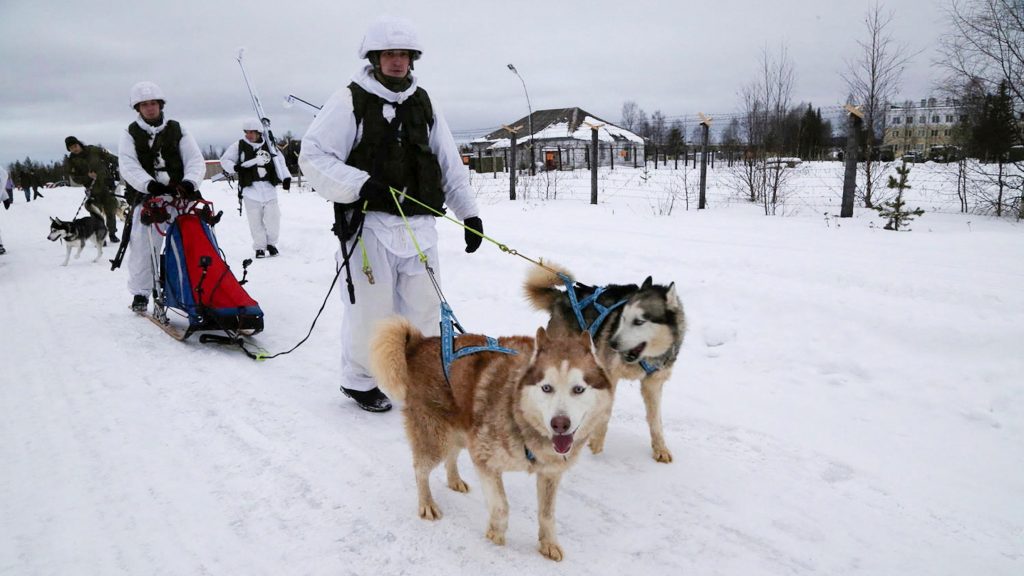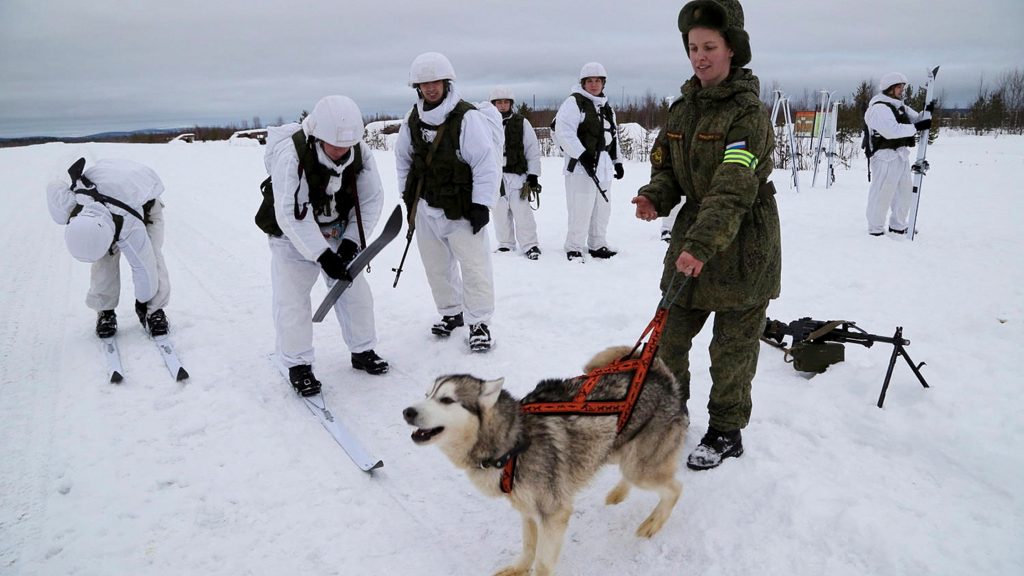Mushers from Russia’s Arctic Brigade practice dog sledding along Finnish border

With weapons on the shoulders, infantry solders learn how to traverse Arctic borderlands with dogs.
The first dogs arrived in the Northern Fleet base of Alakurtti earlier this year and local servicemen have since been engaged in training in the forestlands along the border to nearby Finland.
Dog sledding has now been included in the regular training of intelligence personnel in the Arctic Brigade. It is the soldiers with the best skills in skiing that have chosen for the mushing, the Northern Fleet informs.
It is Nadezhda Timonova, an experienced musher and prize winner and herself a soldier in the brigade, that has taken on the task as chief dog handler, the military press service says.

From before, the Russian Arctic Brigade also includes reindeer used for transportation purposes in rough terrain.
Alakurtti houses Russia’s 80th Independent Motorized Rifle Brigade. It is located in the southern part of the Kola Peninsula, only about 50 km from the border to Finland.
The Russian Arctic Brigade also includes the 61st Naval infantry brigade and the 200th Motorized Rifle Brigade in Pechenga, the municipality located along border to Norway.
Before the 2WW, the small military town was part of Finland.
Related stories from around the North:
Canada: Canada, U.S. must do more to check Russian military in the Arctic, says NORAD chief, CBC News
China: US sanctions against Chinese shipping company could hurt Russia’s LNG exports, The Independent Barents Observer
Finland: US missiles: Finnish, Russian presidents call for dialogue at Helsinki meeting, Yle News
Norway: Time to end Western sanctions against Russia, Arctic Norwegian leader says, The Independent Barents Observer
Russia: Weapons shipped to new garrison in Arctic Russia, The Independent Barents Observer
Sweden: Sweden-Russia relations hit new low after diplomats expelled, Radio Sweden
United States: In the Arctic as in space, Russia and West can look past differences to pursue common goals: study, Radio Canada International



